With many different types of trains available for various reasons and purposes, the Indian Railway System is one of the world’s most complex systems. When you check the railway timetable or go to the Indian railway inquiry, you may get confused about which train to travel in. Choosing the best type of train may often get a tad tricky. But you need not worry, for we have taken care of that for you. In this article, you will learn in detail about the different types of trains available in India.
As you must already know, different kinds of trains meet different needs of travelers. Some trains meet your long-distance traveling criteria; some are best suited for short distances. And some trains connect remote villages, and some meet the ends of the country effectively.
Indian trains are planned based on the following factors:
Speed
Some trains make frequent stops while traveling from the starting station to the destination, and as a result, their journey time is longer. Some trains make stops only at major stations and are faster.
Facilities
Some trains have pantry cars, WiFi, etc.
Coaches
Most trains have several coaches, such as AC Tier 1, AC Tier 2, AC Tier 3, Sleeper Class, AC Chair Car, Executive Class Chair Car, Second Class Seater, General, etc. Some trains have only one type of coach.
Day or Night Travel
Day trains have sitting chairs, whereas night trains have sleeping berths.
Theme
Some major exclusive trains include toy trains, luxurious tourism trains (Golden Chariot, for instance), super-fast trains, etc. Some are highly economical, and some can easily burn a hole in your pocket.
Now, let’s look at some of the major types of trains.
Duranto Express

Duranto Express is the fastest train in India. Launched in 2010, this is also the newest addition to Indian Railways. If you travel a distance of more than 500 km, then Duranto Express is your best option. This is cheaper than flight tickets or equal.
Coaches: AC3, AC2, AC1. Some trains also include CC, EC, 3E, and Sleeper Class.
Average Speed: 82 mph
Duranto Express connects long-distance cities and intends to become a quick alternative to flying. Except for a few technical stops, the train has no stops between source and destination stations.
- Routes
- Duranto Express is operational in some of the major cities.
- Delhi to Kolkata, Lucknow, Allahabad, Chennai, Pune, Secunderabad, Ernakulam, and Kolkata.
- Mumbai to Ahmedabad, Nagpur, and Kolkata
- Bangalore to Kolkata
2. Rajdhani Express
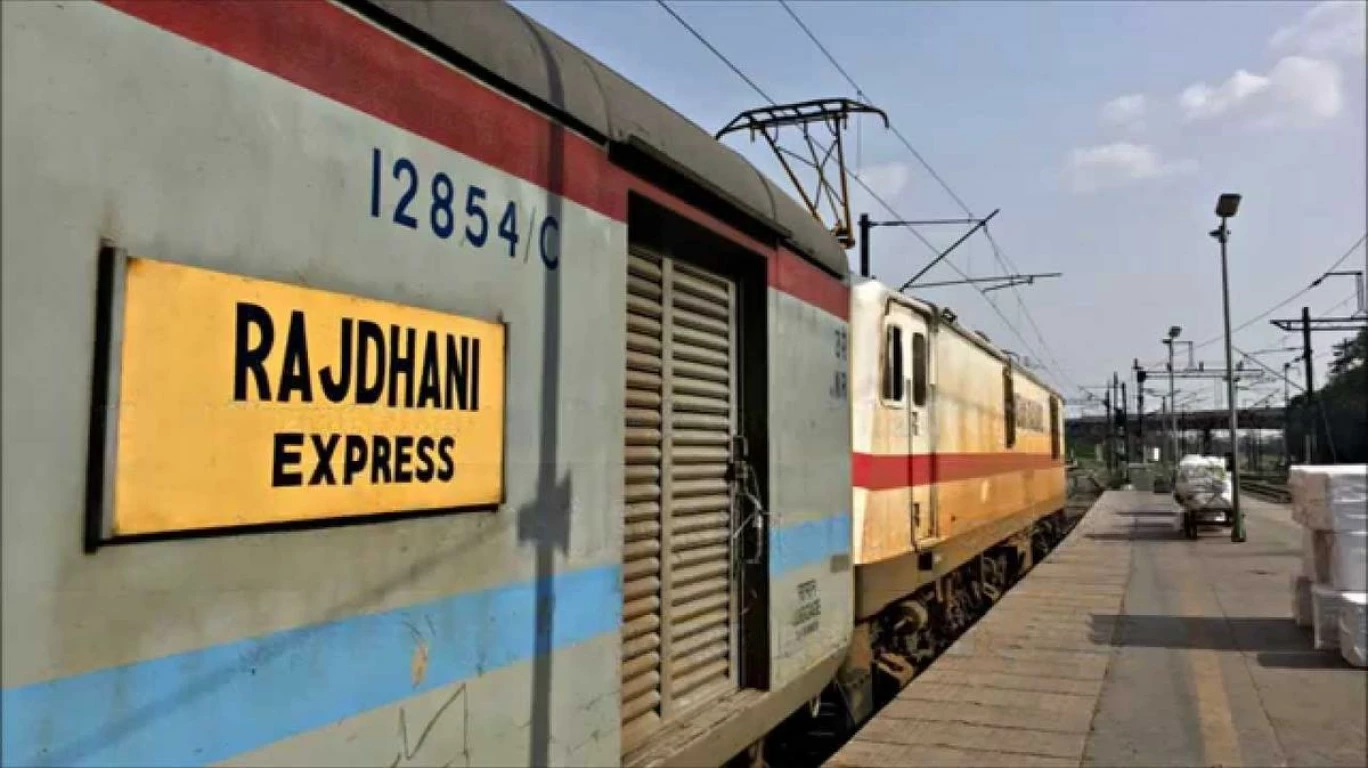
Rajdhani Express is one of the oldest trains in Indian Railways and is known for luxury and speed. It was established in 1969. At an average speed of 80 mph, this is the second-fastest train in India.
- Similarities and Differences between Rajdhani Express and Duranto Express
- Both Rajdhani and Duranto make only a few stops at some major stations, making them fast and efficient.
- Rajdhani makes a few stops between its source and destination stations, and it’s a bit slower than Duranto Express.
- Both Rajdhani Express and Duranto Express are the preferred trains for most travelers traveling a long distance. Both trains provide free food, snacks, and tea/coffee on board.
- All the Rajdhani Express trains’ coaches are air-conditioned, whereas some Duranto Express trains have non-AC sleeper coaches.
- Both Rajdhani Express and Duranto Express trains support the Tatkal reservation quota.
Rajdhani Express connects the national Capital of the country, New Delhi. Duranto Express connects two important cities, Ex Mumbai – Kolkata, Bangalore – Kolkata, Pune – New Delhi.
Rajdhani Express (Rajdhani, meaning Capital) stays true to its name. It connects different cities of the country to the Capital of India, New Delhi. From free food, snacks, and beverages to overnight travel options, it offers many comfortable choices to travelers.
3. Shatabdi Express

Shatabdi Express trains are known to be the ideal alternative to buses. Run during the day, these trains connect all the major cities across the country. Unlike other trains, they do not have berths. They only have seats. This makes sense, as they run only during the day. The seating is very comfortable. The timings are flexible and are very helpful if you make sudden plans.
The tickets are also easily available, as each coach accommodates more seats, unlike other trains. As a result, the number of seats available is higher. If you travel frequently by bus, then switching your priority to trains can be helpful. Shatabdi Express covers shorter routes and is less expensive than buses. Besides, they are more comfortable than buses.
Features
- Shatabdi Express trains are fast, with an average speed of 80 kmph, and cover distances up to 1000 km.
- Connects all the major cities in India
- Coach types include Chair Car and Executive Class.
- Tickets are available even 5 minutes before the train departure, just like you buy a bus ticket.
- It is cheaper than Rajdhani Express. If you are traveling by day, then Shatabdi Express is ideal for you.
- Provides free meals and snacks
- Routes: Popular stations include Mumbai, Ahmedabad, Goa, Delhi, Ajmer, Bangalore, Chennai, Kolkata, Lucknow, Jaipur, and many more.
4. Garib Rath
If you want to travel in excellent comfort without burning a hole in your pocket, then Garib Rath is perfect for you. Garib Rath, meaning Chariot of the Poor, is a recent addition to Indian Railways. The major coaches include 3E AC and CC coaches.
Features
- Garib Rath was the first to introduce the 3E Class, which is similar to a 3AC class. The only difference is that the 3E type has an additional berth on the side seats.
- Fully air-conditioned
- Primarily designed for those who can’t afford expensive trains like Shatabdi Express or Rajdhani Express.
- Suitable for long-distance routes
5. Jan Shatabdi
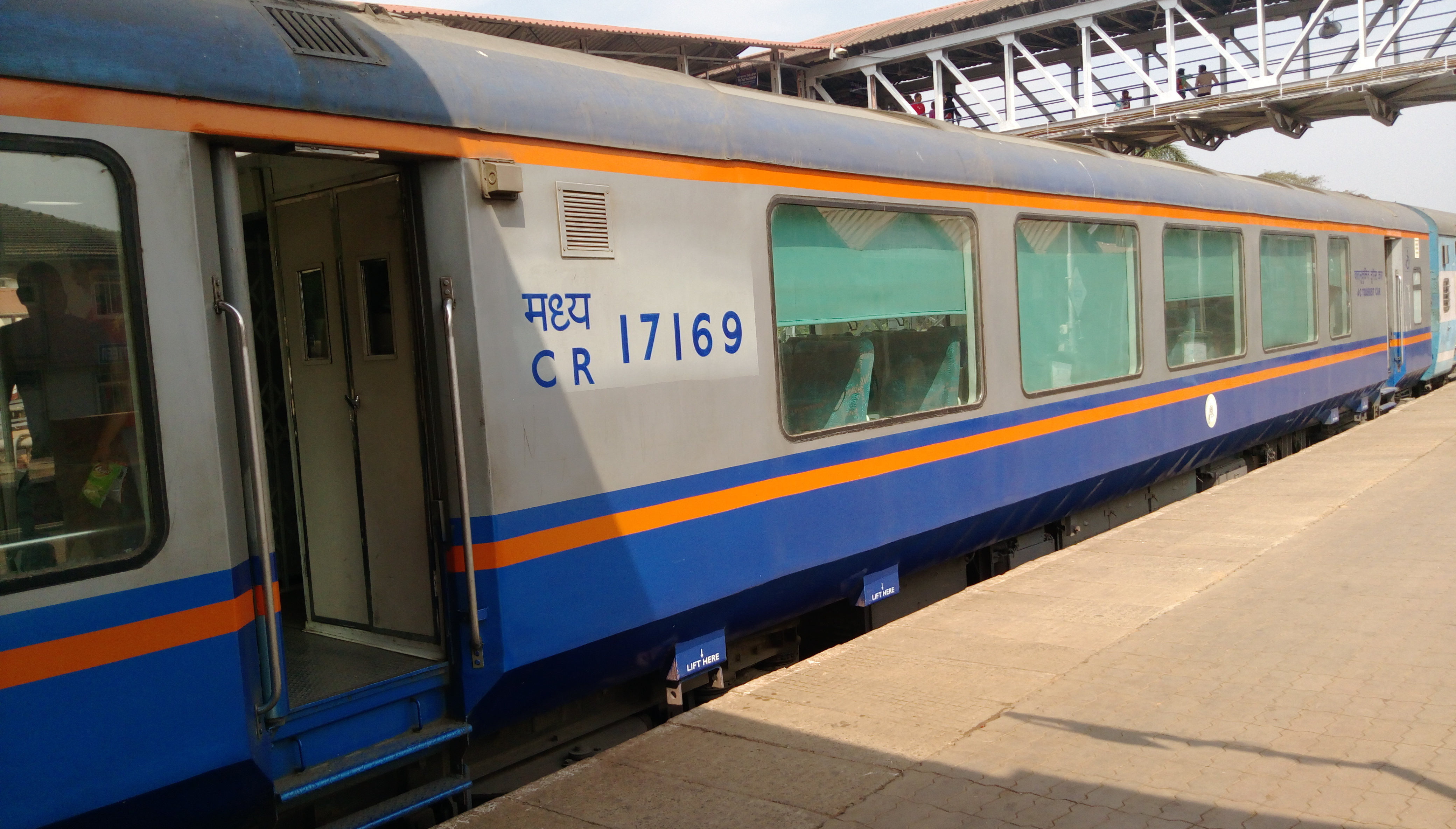
If you want to travel long-distance routes in a short period without spending a lot, then Jan Shatabdi is the perfect choice for you. These trains are primarily designed for those who do not want to spend a fortune on luxury but want to reach their destination faster. Jan Shatabdi’s Non-AC Chair Car is very reasonable. Its cost is almost equal to unreserved express or mail trains. For instance, Mumbai to Goa (covering a distance of 800 km) will cost you just around Rs.270 or slightly more than that.
Moreover, it only has seats and not berths, and the number of tickets available is more than that of other trains. So you will almost always get access. You don’t have to worry about reserving your seats at all. Look at the railway timetable or go to the Indian Railway inquiry for more details.
Features
- Jan Shatabdi is a cheaper version of Shatabdi Express.
- Jan Shatabdi has both CC AC and non-AC classes.
- The average speed is quite equal to Shatabdi.
- Only runs during the day and connects distances ranging between 500 km to 1000 km.
6. Sampark Kranti
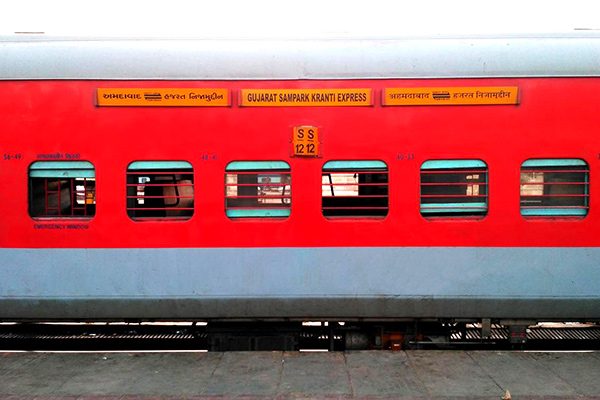
Sampark Kranti Express trains are known to connect different states to the Capital, New Delhi. These are very efficient trains, with an average speed equivalent to Shatabdi or Jan Shatabdi trains. They include Sleeper Class, AC, and unreserved coaches.
Sampark Kranti Express trains are an ideal second alternative, just if you don’t get seats in Garib Rath or other trains. These are also well-suited for the overnight journey. With Sleeper and AC classes, they make for a comfortable experience. Sampark Kranti Express trains are fast, comfortable, and very reasonable. Check out Indian railway inquiry for Tatkal reservations for Sampark Kranti Express trains.
7. Superfast Express/Mail
Superfast Express/Mail trains are ideal for long routes. These have more stops between source and destination stations compared to the trains discussed above. Hence, they are quite slow compared to other express trains. These are very helpful if you are traveling to a small town. They are cheap and comfortable.
Superfast Express/Mail trains are the most common and oldest type of trains in Indian Railways. These are also the preferred trains among the Indian middle class. They are quite slow, with an average speed of 55 kmph.
8. Express Trains
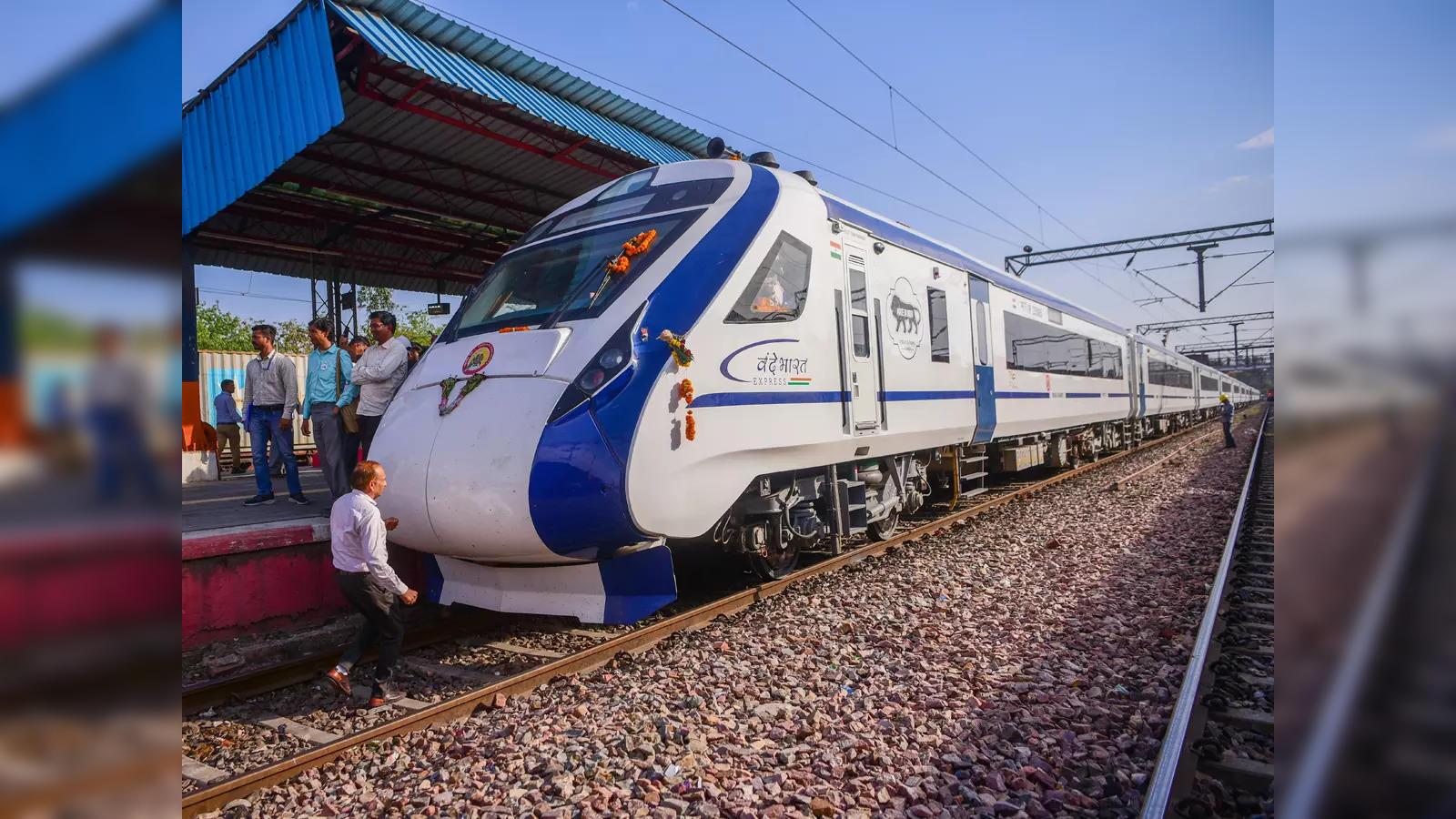
Express trains are the most common type of train in the country. They have been in existence for a long time. These make many stops between their source and destination stations, making them quite slow compared to other trains.
9. Passenger/Superfast Passenger
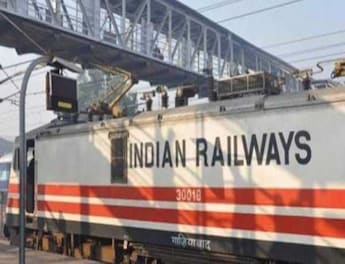
These trains are ideal for short-distance routes, usually within a state. They make frequent stops at small stations and villages. They connect remote villages, making them very accessible to everyone. They are slow, and the price is low.
10. Suburban Trains

Suburban trains mostly operate in urban regions like Mumbai, Kolkata, Chennai, Delhi, Hyderabad, Kanpur, Lucknow, and Pune. The seating is always unreserved and works on a first-come-first-serve basis. They mostly operate inside one particular city and are suitable for commuting to work daily.
11. Metros and Monorails
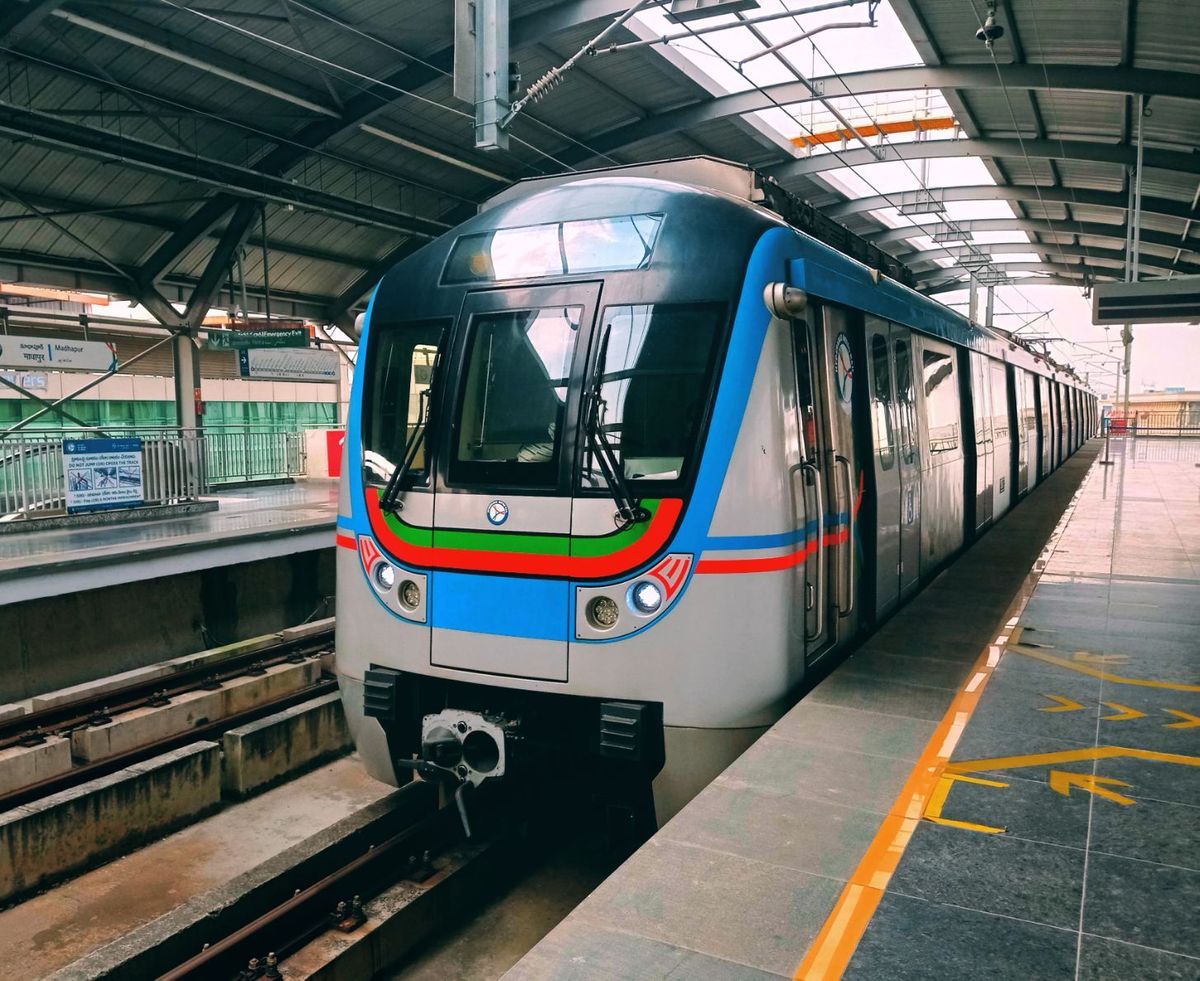
These trains are quite sophisticated and are also unreserved. They operate in some of India’s major cities, such as Mumbai, Delhi, Kolkata, Bangalore, Jaipur, Lucknow, Kochi, Chennai, and Hyderabad. Ticket prices are higher than suburban trains but serve the same purpose by operating inside a city. Suitable for those who commute to work in the city daily.
These are the major types of trains available in India. Check your priorities and needs before deciding to travel on a particular kind of train. Always make sure to check the railway timetable before making reservations. Most of these trains have a tatkal reservation option. Either way, always check with the Indian railway inquiry before deciding on a particular type of train.
Author Bio:
Nidhi Mahajan is a guest blogger and passionate about content writing. She has been creating SEO-friendly content for more than five years. For more info, you can check her Blogs at pop-pins.com

